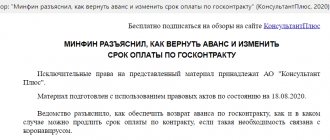Pravozhil.com > Real estate registration > What is alienation of real estate, types of alienation
It is important to know what alienation of real estate is. After all, it is difficult to imagine modern economic and social legal relations in which the fact of sale and acquisition of any real estate is not present.
Individuals use it for living. And legal entities make a profit and use it in their business activities.
Therefore, before concluding any transactions, you need to understand what alienation of real estate is.
What is alienation of real estate
By alienation of property, lawyers mean all transactions related to the transfer of ownership from one person to another, for compensation, free of charge or on a forced basis
Alienation of property - what does it mean? From a legal point of view, there is no such term as sale or donation of real estate. The concept of alienation of property is applied to such legal relations.
The alienation of the specified property means such a legal transaction (alienation agreement), as a result of which the owner of the specified property transfers the right to it to another person.
The alienator may be individuals or legal entities. As well as the state, represented by territorial or municipal bodies.
The acquirer can be citizens of our state who have legal capacity, as well as legal entities that conduct any (commercial and non-commercial) activities.
Transfer of rights to such property can occur in the following ways:
- purchase and sale agreement, that is, when the owner of the property sells it to another person and receives compensation for this (voluntary alienation);
- a gift agreement, in which the owner of an apartment or other object gives it to his relative or other person (including a legal entity) without receiving any remuneration for it (voluntary alienation, without receiving material benefits);
- making an exchange when a piece of real estate is transferred to another person, who in return transfers some thing or other material benefit (car, jewelry). In essence, this is also a voluntary alienation with the receipt of certain material benefits;
- gratuitous transfer (for example, during confiscation), or other legal actions by government authorities (requisition).
In fact, the alienation of property is the process of transferring ownership rights to it from one person to another on compensated (receipt of any material benefit) or gratuitous conditions.
It is important to remember that the fact of transfer of rights is confirmed only after their official state registration for any real estate in a special state register.
Certification of real estate alienation transactions.
For the form of transactions for the alienation of real estate (purchase and sale, exchange, gift), Article 550 of the Civil Code of the Russian Federation (hereinafter referred to as the Civil Code of the Russian Federation) establishes a special requirement - they are carried out in writing - simple or notarial, the transfer of ownership of real estate is subject to state registration .
At the same time, notarization of transactions is mandatory in cases specified in the law, as well as in cases provided for by agreement of the parties, at least by law this form was not required for transactions of this type.
Federal Law No. 122-FZ of July 21, 1997 “On state registration of rights to real estate and transactions with it” (Articles 24, 30) established a mandatory notarial form for transactions:
- on the alienation of shares in the right of common ownership of real estate, including the alienation by all participants in shared ownership of their shares under one transaction;
- for the alienation of real estate belonging to a minor citizen or a citizen recognized as having limited legal capacity, they are subject to notarization;
— as well as for transactions related to the disposal of real estate under the terms of guardianship.
Notarization of a transaction means checking the legality of the transaction, including whether each party has the right to complete it, which is carried out by a notary or an official who has the right to perform such a notarial act, in the manner established by the law on notaries and notarial activities.
When notarizing a transaction, in particular an agreement, the notary is guided by the rules provided for by the Fundamentals of the Legislation of the Russian Federation on Notaries (hereinafter referred to as the Fundamentals), in particular, he ascertains the legal capacity of the persons who have applied to him for certification of the transaction, explains to the parties the meaning and significance of the draft transaction presented by them, checks whether its content corresponds to the actual intentions of the parties and does not contradict the requirements of the law (Articles 43, 54-56 of the Fundamentals).
When certifying transactions aimed at alienating property, the rights to which are subject to state registration (Article 8.1 of the Civil Code of the Russian Federation), the notary verifies the ownership of this property by the person alienating it, unless, in accordance with the transaction, at the time of its completion this property is still does not belong to this person.
At the same time, the information necessary to certify the transaction, contained in the Unified State Register of Rights to Real Estate and Transactions with It, or information entered in the State Real Estate Cadastre, is requested by notaries independently and received in accordance with the Federal Laws of July 21, 1997 No. 122-FZ “On state registration of rights to real estate and transactions with it”, dated July 24, 2007 No. 221-FZ “On the State Real Estate Cadastre” deadlines.
Certification of contracts for the alienation of a residential building, apartment, cottage, garden house, garage, as well as a land plot is carried out at the location of the specified property.
Within the meaning of Article 48 of the Fundamentals, a notary certifies a transaction if it complies with the requirements of the law, and the documents submitted for its completion comply with the requirements of the law.
When drawing up a contract for the purchase and sale of real estate, you should pay attention to its essential conditions and the features of its conclusion.
The contract for the sale of real estate must contain data that makes it possible to definitely identify the real estate to be transferred to the buyer under the contract, including data that determines the location of the real estate on the relevant land plot or as part of other real estate. In the absence of this data in the contract, the condition regarding the real estate to be transferred is considered not agreed upon by the parties, and the corresponding contract is not considered concluded.
The contract for the sale of real estate must stipulate the price of this property.
If the contract does not contain a condition agreed upon in writing by the parties regarding the price of real estate, the contract for its sale is considered not concluded. In this case, the rules for determining the price provided for in paragraph 3 of Article 424 of the Civil Code of the Russian Federation do not apply.
Unless otherwise provided by law or a contract for the sale of real estate, the price of a building, structure or other real estate located on a land plot established therein includes the price of the corresponding part of the land plot or the right to it transferred with this real estate.
In cases where the price of real estate in the contract for the sale of real estate is set per unit of its area or other indicator of its size, the total price of such real estate to be paid is determined based on the actual size of the real estate transferred to the buyer.
The transfer of real estate by the seller and its acceptance by the buyer is carried out according to a transfer deed or other transfer document signed by the parties.
Unless otherwise provided by law or contract, the seller’s obligation to transfer real estate to the buyer is considered fulfilled after the delivery of this property to the buyer and the signing of the relevant transfer document by the parties.
Failure of one of the parties to sign a document on the transfer of real estate on the terms stipulated by the contract is considered a refusal, respectively, of the seller’s obligation to transfer the property, and the buyer’s refusal of the obligation to accept the property.
Acceptance by the buyer of real estate that does not comply with the terms of the contract for the sale of real estate, including in cases where such non-compliance is specified in the document on the transfer of real estate, is not a basis for releasing the seller from liability for improper performance of the contract.
In the event that the seller transfers to the buyer real estate that does not comply with the terms of the contract for the sale of real estate regarding its quality, the rules of Article 475 of the Civil Code of the Russian Federation are applied, with the exception of the provisions on the buyer’s right to demand the replacement of goods of inadequate quality with goods that comply with the contract.
Under a contract for the sale of a building, structure or other real estate, the buyer, simultaneously with the transfer of ownership of such real estate, is transferred the rights to the land plot occupied by such real estate and necessary for its use.
In the case where the seller is the owner of the land plot on which the property being sold is located, the buyer is transferred the ownership of the land plot occupied by such real estate and necessary for its use, unless otherwise provided by law.
The sale of real estate located on a land plot that does not belong to the seller by right of ownership is permitted without the consent of the owner of this plot, unless this contradicts the conditions of use of such a plot established by law or agreement.
When selling such real estate, the buyer acquires the right to use the corresponding land plot under the same conditions as the seller of the real estate.
An essential condition of the contract for the sale of a residential building, apartment, part of a residential building or apartment in which persons live who, in accordance with the law, retain the right to use this residential premises after its acquisition by the buyer, is a list of these persons indicating their rights to use the residential premises being sold.
The specifics of the purchase and sale of residential premises that meet the conditions for classification as economy class housing established by the authorized federal executive body are determined by law.
The specifics of the purchase and sale of an enterprise are provided for in Articles 559-566 of the Civil Code of the Russian Federation.
It should also be taken into account that if the consent of a third party, a body of a legal entity or a state body or a local government body is required to complete a transaction by force of law, the third party or the relevant body informs the person who requested the consent or another interested party about its consent or refusal thereof. person within a reasonable time after receiving the application of the person requesting consent.
The preliminary consent to carry out a transaction must define the subject of the transaction to which consent is given. Upon subsequent consent (approval), the transaction to which consent has been given must be indicated.
Silence is not considered consent to complete a transaction, except in cases established by law (Article 157.1 of the Civil Code of the Russian Federation).
In order for one of the spouses to enter into a transaction for the alienation of real estate, which is the common property of the spouses, it is necessary to obtain the notarized consent of the other spouse (Article 35 of the Family Code of the Russian Federation).
When selling a share in the right of common ownership of real estate to an outsider, it is necessary to take into account that the seller of the share is obliged to notify in writing the other participants in shared ownership of his intention to sell his share, indicating its price and other conditions under which he sells it.
A transaction for the sale of a share in the right of common ownership of real estate to an outsider can be notarized no earlier than one month from the date the seller notifies the remaining participants in the shared ownership of the share. If the notary establishes that the seller of the share has submitted documents confirming the refusal of the remaining participants in shared ownership to purchase his share, the transaction can be completed before the expiration of a month from the date the seller of the share notified the remaining participants in shared ownership.
The seller can notify about the sale of a share in the right of common shared ownership of real estate independently, as well as through a notary in the manner prescribed by Article 86 of the Fundamentals. When performing a notarial act of transmitting a seller’s notice within the framework of Article 86 of the Fundamentals, the notary does not verify the accuracy of the information provided by the applicant about the co-owner and the address to which the notice should be sent.
When certifying transactions for the alienation of real estate by a notary, a notary fee is charged, as well as a fee for the provision of legal and technical services. At the same time, the notary fee for certifying transactions depends on whether certification of the transaction is mandatory by law or whether the notarial form of the transaction is optional.
For certification of a transaction for which the legislation of the Russian Federation does not provide for a mandatory notarial form, the notarial fee is charged by the notary in the amount established in accordance with the requirements of Article 22.1 of the Fundamentals. If the notarial form of the transaction is required, the notary charges a notarial fee in the amount and taking into account the specifics established by the Tax Code of the Russian Federation.
The notary fee established by the Fundamentals for certification of transactions the subject of which is the alienation of real estate is:
spouse, parents, children, grandchildren depending on the transaction amount:
up to 10,000,000 rubles inclusive - 3,000 rubles plus 0.2 percent of the valuation of real estate (transaction amount);
over 10,000,000 rubles - 23,000 rubles plus 0.1 percent of the transaction amount exceeding 10,000,000 rubles, but not more than 50,000 rubles;
to other persons depending on the transaction amount:
up to 1,000,000 rubles inclusive - 3,000 rubles plus 0.4 percent of the transaction amount;
over 1,000,000 rubles up to 10,000,000 rubles inclusive - 7,000 rubles plus 0.2 percent of the transaction amount exceeding 1,000,000 rubles;
over 10,000,000 rubles - 25,000 rubles plus 0.1 percent of the transaction amount exceeding 10,000,000 rubles, and in the case of alienation of residential premises (apartments, rooms, residential buildings) and land plots occupied by residential buildings - no more than 100,000 rubles
In the event that a transaction for the alienation of real estate is subject to mandatory notarization by force of law, the notary fee is charged by the notary in accordance with subparagraph 5 of paragraph 1 of Article 333.24 of the Tax Code of the Russian Federation, as for certification of other agreements, the subject of which is subject to assessment, if such certification is required in accordance with the legislation of the Russian Federation, and amounts to 0.5 percent of the contract amount, but not less than 300 rubles and not more than 20,000 rubles.
When certifying transactions the subject of which is the alienation or pledge of real estate having a cadastral value, if the assessment given to this real estate by the participants (parties) of the transaction is lower than its cadastral value, the cadastral value of this real estate is used to calculate the tariff.
an agreement under which one party (the donor) gratuitously transfers or undertakes to transfer to the other party (the donee) certain property or a property right (claim) to himself or a third party, or releases or undertakes to release it from a property obligation to himself or a third party. Gratuitousness is the main classifying feature of a gift agreement; if there is a counter-transfer of a thing or right or a counter-obligation, the contract is not recognized as a gift. An agreement providing for the transfer of a gift to the donee after the death of the donor is void. Certain actions (or inactions) as a result of which the owner of the property changes. With the transfer of ownership, the new owner has legal grounds for ownership, disposal and use of property. As a rule, the basis for transfer of ownership is the completion of a transaction. land plots, subsoil plots and everything that is firmly connected to the ground, that is, objects the movement of which is impossible without disproportionate damage to their purpose, including buildings, structures, unfinished construction objects, as well as parts of buildings intended to accommodate vehicles (machines) -places). Immovable property also includes aircraft, sea vessels and inland navigation vessels subject to state registration. checking the legality of the transaction, including whether each party has the right to complete it. Carried out by a notary or an official who has the right to perform such a notarial act, in the manner determined by the Fundamentals of the legislation of the Russian Federation on notaries and civil legislation. land plots, subsoil plots and everything that is firmly connected to the ground, that is, objects the movement of which is impossible without disproportionate damage to their purpose, including buildings, structures, unfinished construction objects, as well as parts of buildings intended to accommodate vehicles (machines) -places). Immovable property also includes aircraft, sea vessels and inland navigation vessels subject to state registration. a legally significant action performed by a notary or an authorized official in accordance with the Fundamentals of the legislation of the Russian Federation on notaries. an official authorized by the state who has the right to perform notarial acts on behalf of the Russian Federation in the interests of Russian citizens and organizations (legal entities). The ability of a citizen through his actions to acquire and exercise civil rights, create civil responsibilities for himself and fulfill them. The capacity and legal capacity of a citizen are mandatory for his participation in civil legal relations. Legal capacity arises in full upon reaching the age of majority – 18 years. Until a person reaches the age of eighteen, legal capacity is acquired through marriage and emancipation. conditions on the subject of the contract, conditions that are named in the law or other legal acts as essential or necessary for contracts of this type, as well as all those conditions regarding which, at the request of one of the parties, an agreement must be reached. an agreement of two or more persons to establish, change or termination of civil rights and obligations. a legal situation by virtue of which one person (debtor) is obliged to perform a certain action in favor of another person (creditor) (for example, transfer property, perform work, provide a service, contribute to a joint activity, pay money etc.), or to refrain from a certain action, and the creditor has the right to demand from the debtor the fulfillment of his obligation. a document giving a person the right to perform a certain action by a person whose consent is required to complete a particular transaction in accordance with the law. Notarized consents include: consent of the spouse to complete a transaction (both for the acquisition and alienation of property), consent to refuse privatization, consent to travel abroad of a minor child, consent of the owners (tenants) of housing for temporary registration. Actions of citizens and legal entities, aimed at establishing, changing or terminating civil rights and obligations. A method of ensuring the fulfillment of obligations, allowing the creditor (pledgee) in the event of non-fulfillment or improper performance by the debtor of the obligation secured by the pledge, to receive satisfaction from the value of the pledged property (the subject of the pledge) preferentially before other creditors the person who owns the pledged property (mortgagor). The subject of collateral can be material assets, manufactured products, land plots or other property owned by the borrower.
Voluntary and forced alienation
What types of alienation are there? It was described above that the current Legislation provides for various methods of legal alienation, among which there is even requisition (forced alienation). In essence, these methods are identical in their legal nature. They differ only in the way ownership is transferred.
Voluntary alienation refers to these actions of a person, including legal entities, and government bodies, which respond to his internal desire for the occurrence of such consequences as the transfer of ownership of his object to another person.
Naturally, this can happen for receiving certain material or other benefits. In some cases, a person’s will is aimed at alienation free of charge, then a deed of gift is drawn up.
By forced alienation we mean the actions of the state represented by its authorized bodies that requisition real estate for any legal reason.
This may be a decision of the court or other competent authorities. Requisition is provided for in the Constitution of our state.
These are the features of the alienation of real estate.
It is important to know that the list of cases in which requisition may occur is clearly regulated by current legislation.
If it occurs under another pretext, these are illegal actions for which criminal liability is provided.
If not conservation, then what?
When the product is not planned to be returned to service, there is no point in preserving it. It is more practical to receive a certain income from it and then write it off the balance sheet. This can be done in one of the following ways:
- transfer of unused property for rent (leasing);
- sale of fixed assets.
As a rule, the conditions for these actions are preferential and beneficial for the buyer or lessee. Often the sale of unused real estate occurs through auctions or other organized trading methods.
Alienation of a share of an apartment, features of such transactions
Among some of the problems that property owners face is shared ownership of a property.
Shared ownership means a situation in which one object (apartment, house) has several owners, and each of them owns a part of it. Naturally, the current legislation protects their rights in the following way.
According to the Civil Code, as well as Federal Law 159 on the specifics of the alienation of real estate, shared owners have the primary right to acquire a share of the property.
Therefore, a person who decides to sell part of an apartment or house, after deciding on the price, is obliged to make an offer to the other owners.
With shared ownership of property, the alienation procedure becomes significantly more complicated
Only after they refuse can you safely carry out the transaction and sell your part to any individual or legal entity. Naturally, this transaction will be notarized.
To avoid any questions from the notary, you can do the following:
- Written statements are taken from other owners that they are not against selling the share to another person, to which a photocopy of the applicant’s passport is attached so that signatures can be compared and authenticity can be verified.
- The second method, which is more effective, is to invite the co-owners to the notary, and assure them of their refusal in the prescribed (written) form.
Features of the agreement on the alienation of the exclusive right to a work
When transferring rights to an intellectual property object such as a work, a number of nuances should be taken into account, which must be reflected in the content of the contract.
Firstly, a work is an object for which the author acquires copyright upon creation. Unlike exclusive rights, they cannot be transferred to anyone; they remain with the author forever.
Secondly, an agreement on the alienation of an exclusive right also cannot limit the author’s rights to:
- creating similar works (on the same topic, the same genre, etc.);
- revocation is the right to refuse to publish a work.
True, if the author exercises his right of revocation, he will have to compensate the acquirer of the property rights to the work for all losses.
Thirdly, the use of exclusive rights to a work is almost always associated with the need to own its material medium (printed text of a literary work, a file with a photograph, etc.). In an agreement for the sale of the exclusive right to a work, it is important not only to indicate the obligation to transfer the material medium, but also to determine the procedure for such transfer and the period. Typically, the fulfillment of this obligation is accompanied by the signing of an acceptance certificate.
Consent to alienation
Alienation occurs with even greater complications if the owner of a share in the real estate is a minor child
The first problematic case, when the property is in shared ownership, was discussed above. But there are still problematic situations.
This also includes the sale or other alienation of real estate owned by minors and minors (or they are co-owners).
In general, children’s rights are strictly regulated, and many government bodies are on their side, one of which is the Guardianship Council.
He is in charge of all transactions involving the alienation of property. It belongs wholly or partially to the children, and it is he who gives consent to all such alienations.
In order to avoid any questions, parents or guardians who decide to sell an apartment where the child owns a part should know the following subtleties:
Before selling the property described, parents must find equivalent housing that is no worse than the one being sold, or has better individual parameters.
If, according to the documents, nothing will be purchased in return, then the board of guardians will not give permission, and if the sale does occur, it will go to court and declare the transaction invalid.
Children who are 14 years old must come to the Board of Guardians (CO) and confirm their consent to the alienation by writing a written statement. If they refuse to do this for any reason, there will be no permission to sell from the OS.
Contract form
To conclude an agreement on the complete transfer of exclusive rights, it is important not only the content, but also compliance with a certain form. Exclusive rights to intellectual property objects are alienated only in writing. The absence of a written form entails the invalidity of the agreement with all the ensuing consequences - the parties return to the situation that existed before the transaction (at best).
If the contract alienates rights to results of intellectual activity or means of individualization that are subject to state registration, the transfer of the exclusive right under the contract will also need to be registered. Thus, registration of the transfer of exclusive rights is necessary when the subject of the transaction is rights to inventions, selection achievements, trademarks, industrial designs and utility models.
Important!
Databases, as well as computer programs, can be patented at the request of their owners. If the rights to these intellectual property objects have been registered, then the transfer of rights must be legalized through the registration procedure.
What documents need to be prepared when alienating property?
In order for the alienation of property to be recognized as legal, the parties to the transaction will need to ensure the correct execution and registration of all documents
In order for the alienation process to be correct, and from a legal point of view, such a transaction cannot be canceled, the parties and participants must know what list of documents is necessary.
On the part of the seller, or the one who alienates, first of all, it is necessary to have a document that confirms his ownership. This can be a purchase and sale agreement, a gift, an inheritance, or a privatization certificate.
If the property is in joint shared ownership, then statements from the other owners will be required that they have been notified of the intentions of alienation and are not against it.
The next thing is the availability of documents from the passport office (district migration service, housing office) about who is registered in the real estate. This is not necessary for commercial real estate.
When conducting a transaction involving the alienation of property, any document or even a certificate may be important; this fact must not be overlooked
If at the time of alienation it is determined that some family members have not been deregistered, then the new owner will have problems with their deregistration. The last thing is the presence or absence of debt for utilities.
Despite the fact that such a certificate is not important and does not affect ownership and disposal, the debt may entail going to court and seizing the apartment or house.
The last document is an extract from the register, which will confirm that at the time of the transaction, the apartment, house or other object is not leased for long-term, there is no arrest or other prohibition on alienation.
If the transaction goes through a notary, then the latter is obliged to check it himself.
There is no need to collect any documents for the person who will become the new owner; the main thing is to check that the buyer has the necessary information.
It is important to know that immediately after concluding an alienation transaction, the new owner must register it in a special state register. And only then will there be a complete transfer of ownership.
Alienation of real estate refers to the process of transferring ownership of it from one owner to a new one. It can be paid or gratuitous.
Watch the video about the alienation of shares in common property rights:
See also Phone numbers for consultation November 30, 2021 Yulia Yuryevna 1162
Share this post
Discussion: 3 comments
- Ivan says:
10/13/2018 at 12:54 pmI didn’t quite understand the functions of a notary in transactions involving the alienation of real estate. What exactly does he certify if all documents still go through Rosreestr and without his consent to registration the transaction is void?
Answer
- Evgeniy says:
10/05/2020 at 00:17
Alienation of property is a very long process with a lot of nuances. We did everything through a notary. There was simply no time to run through all the authorities, collect certificates and papers.
Answer
- Albina says:
06.10.2020 at 00:27
You should not get involved with property that includes a minor child. In 90 percent of cases, problems arose later. If the child is already 14 years old, then it’s easier.
Answer
Involving unused property into circulation
The state is especially strict with regard to unused property that is in municipal ownership. Its list is approved by the government, and then involved in economic circulation in accordance with the relevant decree. Main ways of involvement:
- sale at auction, where the starting price will be the base value established by law;
- transfer for free use to individual entrepreneurs or private legal entities;
- transfer for free use;
- other use that does not contradict the law.
Free, but not uncontrolled
The transfer of objects unnecessary to the state to private investors does not happen just like that, but on the basis of a specific investment project. If an entrepreneur is ready to invest money in an unused object (most often this is real estate), this process is strictly regulated and controlled. The investor must prove that this object will actually be given its intended use by providing a project (business plan). If successful, the result will be a mutual benefit:
- instead of empty buildings and structures, useful functioning objects will appear;
- new jobs will be in demand for them, which will bring income to both the entrepreneur and the budget;
- If all conditions are met, the object then becomes the property of the investor who invested in it.
Sale by auction
Auctions for unused property as a means of involving it in circulation are most often used.
Everything is clear with items and equipment - they simply become the property of a new owner who plans to use them. If real estate is sold, then the land plot on which it is located is most often given for rent. The auction is announced in advance in the media, on specialized platforms and publications, applications for participation are submitted, and the auction is held among applicants.
If no one has purchased the lot, the following measures may be taken:
- the cost is reduced by 20%;
- after the second unsuccessful trades – by another 50%;
- maximum reduction – up to 80% of the initial price.
The new owner must deposit the money within the prescribed period, otherwise the results of the auction will be canceled.









